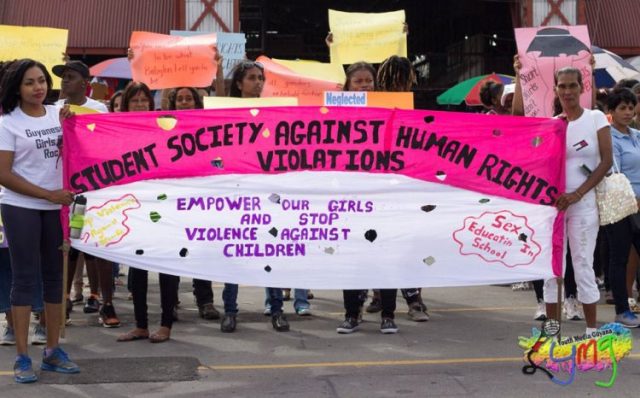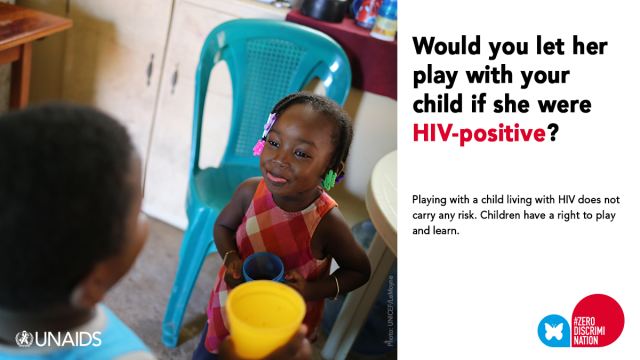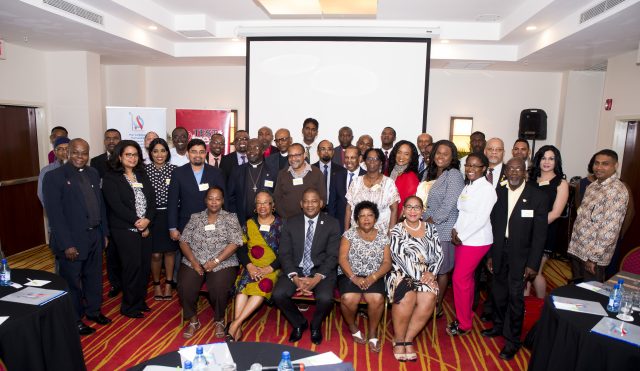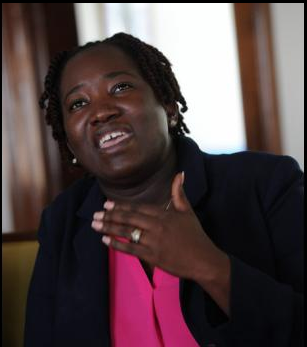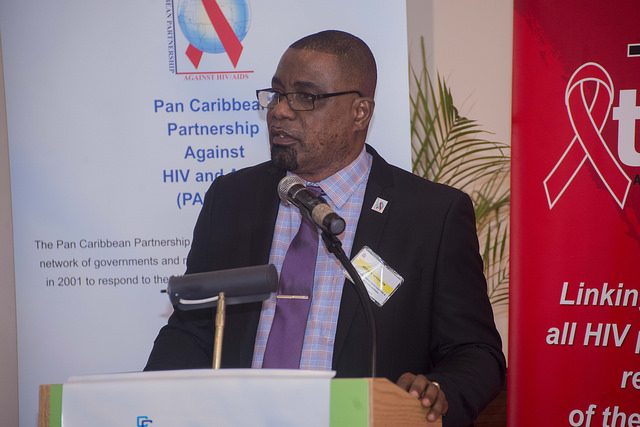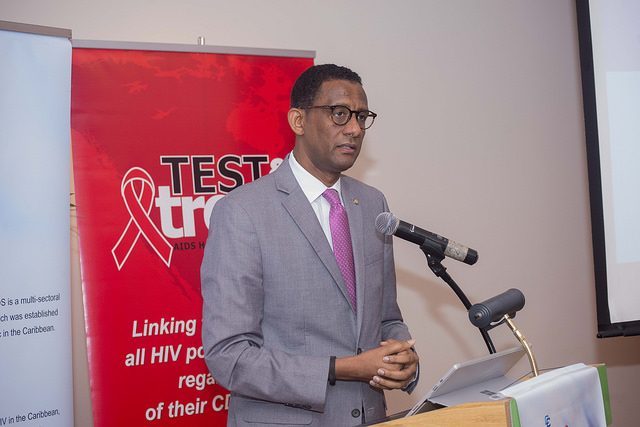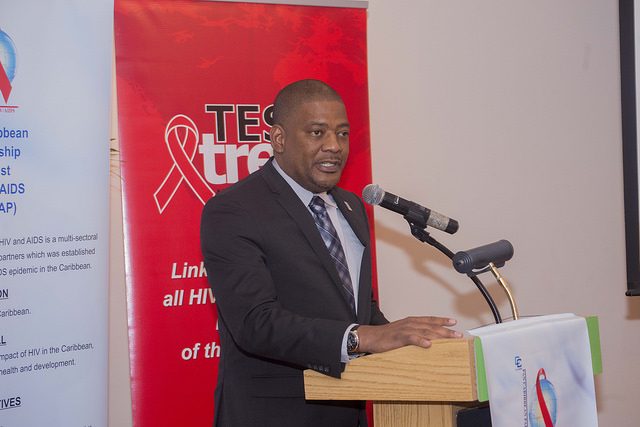Panama City, February 2018 – UNAIDS welcomes the historic Advisory Opinion of the Inter-American Court of Human Rights (IHR Court), which interprets the American Convention on Human Rights to analyze aspects related to gender identity, gender equality and non-discrimination for same-sex couples. The IHR Court issued this Advisory Opinion following a request from the Government of Costa Rica, for which all signatory countries to the American Convention on Human Rights are bound.
In its decision, the Court reiterated its consistently held view that sexual orientation and gender identity are categories protected by the American Convention, in which all States “must recognize and guarantee all the rights that are derived from a family bond between people of the same sex”, including marriage. It requires governments to “guarantee access to all existing forms of legal domestic systems, including the right to marriage, to ensure the protection of all the rights of families formed by same-sex couples without discrimination”. The IHR Court also ruled that transgender people have the right to change their name in their identification documents in accordance with their self-perceived gender identification.
UNAIDS considers that the implementation of this decision will provide definitive support for HIV prevention, treatment and care enabling countries in Latin America and the Caribbean to make progress towards the zero discrimination target while leaving no one behind in the framework of the 2030 Sustainable Development Agenda.
This document’s objective is to facilitate the reading of the Advisory Opinion by detailing the answers to frequently asked questions and providing guidance on possible follow-up actions for civil society and communities.
What is the Inter-American Court of Human Rights (IHR Court)?
It is a judicial body of the Organization of American States (OAS), and is autonomous from other bodies within the same organization. The headquarters of the IHR Court are in San José, Costa Rica, and its objective is to apply and interpret the American Convention on Human Rights and other human rights treaties over which the Court has jurisdiction. This is achieved through the Inter-American System for the Protection of Human Rights.
What is the American Convention on Human Rights (the Convention)?
In November 1969, the Inter-American Specialized Conference on Human Rights was held in San José, Costa Rica, at which, delegates from Member States of the Organization of American States wrote the Convention, which came into effect on July 18, 1978. Currently, 23 nations are signatories to the Convention: Argentina, Barbados, Bolivia, Brazil, Colombia, Costa Rica, Chile, Dominica, Ecuador, El Salvador, Grenada, Guatemala, Haiti, Honduras, Jamaica, Mexico, Nicaragua, Panama, Paraguay, Peru, the Dominican Republic, Suriname and Uruguay.
What is the jurisdiction of the Advisory Opinions issued by the IHR Court?
Member States of the OAS may consult the Court about the interpretation of the American Convention on Human Rights or other human rights instruments ratified by the American States. This is what Costa Rica did by consulting the IHR Court about the scope of the Advisory Opinion issued on the rights of people in same-sex relationships in terms of marriage and transgender people and their gender identity. This regional ruling, which is binding through Advisory Opinion OC-24/17, was issued on November 24, 2017.
What is the scope of a binding Advisory Opinion issued by the IHR Court?
When a State is signatory to an international treaty, such as the Convention, all of its bodies, including judicial and legislative powers, are bound to this treaty. Under this obligation, States must in good faith facilitate the necessary legislative, administrative and judicial reforms to adjust their internal regulations and practices to the progressive interpretation of the Convention. However, the IHR Court ruled that it is necessary that States find a way to overcome institutional and political difficulties to adjust their legislation to the new Advisory Opinion. These reforms are the result of legal developments, either judicial or legislative that cover other geographic zones in the continent and are understood as a progressive interpretation of the Convention.
Based on this decision by the IHR Court, can transgender people who live in countries that have ratified the American Convention legally change their name in line with their self-perceived gender?
The IHR Court ruled that changing one’s name, modifying one’s appearance, and correcting the sex category in registration and identification documents to reflect an individual’s self-perceived sex are human rights protected by the American Convention. As a result, States are obliged to recognize, regulate and establish the necessary procedures to guarantee these rights.
Based on the Advisory Opinion issued by the IHR Court, will people of the same sex be able to marry?
The IHR Court ruled that a family bond involving a same-sex relationship is protected by the Convention. Subsequently, it recognized that all property rights that arise from same-sex couple’s family relationships must be protected in the same manner as the property rights of heterosexual couples. Creating new legal entities is not necessary in order to guarantee same-sex couples’ rights, and thus the Court opted to extend existing institutions and rights to same-sex couples, including marriage, according to the pro persona principle.
What impact could the application of this advisory opinion have on the HIV response and for transgender people?
In its Advisory Opinion, the Court stated that “the recognition of gender identity by the State is of vital importance to guarantee the full enjoyment of human rights by transgender people”. This includes, among other rights, protection against all forms of violence, torture and mistreatment, as well as the guaranteeing the rights to health, education, employment, housing, and access to social security, including the right to free expression and association. The full enjoyment of rights by transgender people positively impacts their access to essential prevention, treatment, care and support services related to HIV. Experience has demonstrated that access to services and HIV prevention increase when these are provided in safe environments that are free of stigma and discrimination. Transgender people who can fully enjoy their human rights have greater opportunities to participate and freely use these services, just like any other citizen.
What impact could the application of this Advisory Opinion have on HIV prevention, treatment, and care for people who have been excluded and discriminated against because of their sexual orientation and haven’t enjoyed legal recognition of same-sex relationships?
With the recognition of same-sex couples, the Court has continued its effort to reduce stigma and discrimination against people due to their sexual orientation, which will contribute to a more inclusive society, enabling people who identify as gay, bisexual and lesbian to access healthcare services, including those related to HIV prevention, treatment and care, in a free and safe environment and on an equal basis.
What concrete actions must be carried out to implement the Advisory Opinion at a country level?
We suggest developing a political advocacy plan in a participatory manner by encouraging more diverse participation from civil society that facilitates social and community mobilization and influences decision-making regarding the implementation of the Advisory Opinion. Related activities include:
Analysis and adaptation of the Advisory Opinion to the national legal framework.
Developing a suitable intervention plan for existing bodies and mechanisms in the country, in accordance with the Convention.
Devising a communication plan that includes press releases, interviews, and collecting opinions from experts and human rights defenders.
Carrying out a follow-up and monitoring plan.


